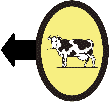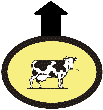 Technically, the fifteenth slice of LitFest cake - the last event in the official programme - would not be until the following night, but the poetry reading organised in association with Colpitts Poetry
Technically, the fifteenth slice of LitFest cake - the last event in the official programme - would not be until the following night, but the poetry reading organised in association with Colpitts Poetry
was last event to bring writers and readers together in the Gala Studio, and the atmosphere was both festive and emotional. The evening united two very different poets: Matthew Sweeney was born in County Donegal, Ireland, in 1952. He lived in London for many years, but is currently living in Romania. His Selected Poems came out from Cape in 2002, and the same publisher brought out his new collection, Sanctuary, in September 2004. His Up on the Roof: New and Selected Poems for children was published by Faber in 2001. He is the co-author of Writing Poetry (Hodder 1997). Last year and Anna Woodford won an Eric Gregory Award and an Arvon/Jerwood Young Poet's Apprenticeship. In 2001, she received a Northern Promise Award from New Writing North. Anna has completed poetry residencies at Hawthornden Castle in Scotland, the Tyrone Guthrie Centre in Ireland and the Blue Mountain Center in the USA. Her pamphlet The Higgins' Honeymoon is published by Driftwood Publications (2001) and her work has appeared in a wide range of magazines and anthologies including the TLS and Rialto. She is currently working on a commission for the Tyne & Wear Fire & Rescue
Service, and is Assistant Editor on the Odyssey Project based at Newcastle University. She is completing a Ph.D. in creative writing and has been shortlisted for the Yaddo colony in 2005.
Anna Woodford's poems strike close to home: she began with Gran's Diary, inspired by her ownership of the diary her grandmother had used through the last year of her life, noting her engagements and activities:
"A talk on The Crisis in Musicbut all year, December (and her grandmother's death) was approaching. A group of poems all spoke of personal relationships, though the ideas which had sparked them off were very various: in Painted Ladies the presence of two women in a painting suggests that the painter has transferred his affections from one to the other "the new mistress for my old master", The Higgins' Honeymoon takes the characters of Henry Higgins and Eliza Doolittle from Shaw's Pygmalion and agrees with Shaw that for Eliza to marry Henry would soon end unhappily, Vena Amoris springs from a meeting with a woman who confided that whenever her husband had an affair, he would buy her a new piece of jewellery. But the set ended with a more enduring but more muted relationship, the death of the poet's grandmother considered this time as it affected her grandfather; again, only death reveals the secrets of Gran's Pantry.
Was followed by the gasman
(After twelve)..."
 Matthew Sweeney claimed wider, more public inspirations for his poetry: he started his set with The Summons, which he described as "written under the influence of Leonard Cohen", and continued with I dream of honey, sparked by a trip to Riga, where the Central Market fills seven Zeppelin hangars, and peasants bring produce, as much or as little as they have to sell. Joni Mitchell's song Big Yellow Taxi also underpins this poem. This richness of allusion, combining personal experience and cultural references, runs throughout Matthew Sweeney's work: his poem Gold reflects the belief that there are Spanish galleons wrecked off the coast of Donegal, full of lost treasure; his meditation on this theme is coloured not only by a sympathy for the men drowned on such ships, but also by that classic depiction of the corrupting power of gold, John Huston's film The Treasure of the Sierra Madre. His poem The Hat is practically a film in its own right.
Matthew Sweeney claimed wider, more public inspirations for his poetry: he started his set with The Summons, which he described as "written under the influence of Leonard Cohen", and continued with I dream of honey, sparked by a trip to Riga, where the Central Market fills seven Zeppelin hangars, and peasants bring produce, as much or as little as they have to sell. Joni Mitchell's song Big Yellow Taxi also underpins this poem. This richness of allusion, combining personal experience and cultural references, runs throughout Matthew Sweeney's work: his poem Gold reflects the belief that there are Spanish galleons wrecked off the coast of Donegal, full of lost treasure; his meditation on this theme is coloured not only by a sympathy for the men drowned on such ships, but also by that classic depiction of the corrupting power of gold, John Huston's film The Treasure of the Sierra Madre. His poem The Hat is practically a film in its own right.
"A green hat is blowing through the Harvard SquareHe, too, ended his first set with a poem whose origin was domestic: The Desert, he explained, "forced itself on me while I was cooking Christmas dinner." Consulting the Larousse Gastronomique in search of instructions for stuffing a goose with prunes filled with forcemeat, he wandered from his task into the section of the book which dealt with North African cuisine - and thence into writing this poem.
and no one is trying to catch it."
 Anna Woodford's second set contained more new work, and she began with a poem in which she too set off from a well-known reference. She had seen Picasso's Guernica while on holiday with a boyfriend in the last days of their relationship; the painting, and in particular the central image of the wounded horse had come to represent for her the end of that relationship. After Matthew Sweeney's crash course in "the poem as movie", it was easy to see her poem Christmas Past (commissioned for National Poetry Day's Feast of Poetry) as a sketch for a film, the vividly evoked family meal steeped in unease whose cause was gradually revealed. Perhaps it is this ability to see the threat in the everyday which made Anna Woodford an apt choice for a residency with the Tyne & Wear Fire Service, where she had been pressed to write a poem with a safety warning message. The result was Shout Fire - A Cautionary Tale, in which a poet's sensitivity to the way we use words to avoid saying what we mean nonetheless conveys the Fire Service's practical advice: if you are caught in a fire, the best thing to shout is not "Help!" or "Emergency!" but "Fire!".
Anna Woodford's second set contained more new work, and she began with a poem in which she too set off from a well-known reference. She had seen Picasso's Guernica while on holiday with a boyfriend in the last days of their relationship; the painting, and in particular the central image of the wounded horse had come to represent for her the end of that relationship. After Matthew Sweeney's crash course in "the poem as movie", it was easy to see her poem Christmas Past (commissioned for National Poetry Day's Feast of Poetry) as a sketch for a film, the vividly evoked family meal steeped in unease whose cause was gradually revealed. Perhaps it is this ability to see the threat in the everyday which made Anna Woodford an apt choice for a residency with the Tyne & Wear Fire Service, where she had been pressed to write a poem with a safety warning message. The result was Shout Fire - A Cautionary Tale, in which a poet's sensitivity to the way we use words to avoid saying what we mean nonetheless conveys the Fire Service's practical advice: if you are caught in a fire, the best thing to shout is not "Help!" or "Emergency!" but "Fire!".
Finally, what could be more domestic, and yet more a part of our shared culture, than a fairy tale? But Anna Woodford is not one to settle for a "happy ever after" ending. She declared that her favourite fairytale heroine is Goldilocks, because her story doesn't have a happy ending, because she is The One That Got Away - and gives a further twist to this theme. The poem tells how:
In Prague, an astronomer saw a light in the skybut the poet adds a coda: she had recently received an e-mail from Prague, from the astronomer who had found her poem and thought she ought to know that he and the blonde girl friend had now parted.
and christened it for her
- and his mystery blonde girlfriend -
The Goldilocks Variable. It's an elusive star...
Matthew Sweeney kept a chill in the imagery with his The Ice Hotel, an imagined visit to the Scandinavian Ice Hotel. The hotel itself exists, with its rooms furniture, sculptures all made of ice; but what is the source of the condition that each guest can stay there only once? Is this poetic invention true or imagined? From the Arctic winter to the heat of the Romanian summer: Matthew Sweeney remarked that usually when he completes a book he has no poems left over. This time, though, he found himself two thirds of the way to the next collection. Half the new poems were about Romania, half looked back to Ireland, and he chose to read one called The Sweat Mark which does both, describing how the summer heat had produced a sweat mark on his T-shirt which he identified as a map of Ireland. Other poems are equally surreal but more universal - Frog-Taming, for example, with its assertion that:
Any fool can learn to catch a frog -"I wrote that when New Labour started," remarked the poet. Finally, he read Sanctuary, "the latest in a long line of seduction poems", in which the poet woos his intended with Bordeaux wine, Cashel Blue cheese and threats of unrest on the streets outside. This strategy is guaranteed successful, and seemed a good note on which to end a festive evening.
The trick is to do it blindfolded.

This website is maintained by Cornwell Internet
as part of their sponsorship of the Literature Festival
Last update: 4th November 2004


